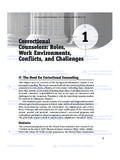Transcription of Contents
1 Vii Contents Author's Note ix Preface and Acknowledgments xi Introduction: The Problem 1 1. "Experiencing" the Psychopath 6 2. Focusing the Picture 16 3. The Profile: Feelings and Relationships 26 4. The Profile: Lifestyle 46 5. Internal Controls: The Missing Piece 58 6. Crime: The Logical Choice 67 7. White-Collar Psychopaths 83 8. Words from an Overcoat Pocket 101 9. Flies in the Web 118 10. The Roots of the Problem 127 Contents viii 11. The Ethics of Labeling 148 12. Can Anything Be Done? 158 13. A survival guide 170 Epilogue 181 Chapter Notes 182 6 Chapter 1 "Experiencing" the Psychopath I could see the dark blood from Halmea's mouth trickling down the sheet toward the part of her that was under Hud.
2 I didn't move or hlink, but then Hud was standing up grinning at me; he was buckling his ruby belt buckle. "Ain't she a sweet patootie?" he said. He whistled and began to tuck his pant legs into the tops of his red suede boots. Halmea had curled toward the --Larry McMurtry, Horseman, Pass By Over the years I've become accustomed to the following experi-ence. In response to a courteous question by a dinner acquaintance about my work, I briefly sketch the distinguishing characteristics of a psychopath. Invariably, someone at the table suddenly looks thoughtful and then exclaims, "Good lord--I think So-and-So must have " or, "You know, I never realized it before, but the person you're de-scribing is my brother-in-law.
3 " These thoughtful, troubled responses aren't limited to the social realm. Routinely, people who have read of my work call my laboratory to describe a husband, a child, an employer, or an acquaintance whose inexplicable behavior has been causing them grief and pain for years. Nothing is more convincing of the need for clarity and reflection on psychopathy than these real-life stories of disappointment and despair. The three that make up this chapter provide a way of easing into this strange and fascinating subject by conveying that characteristic sense that "something's wrong here but I can't quite put my finger on it." One of the accounts is drawn from a prison population, where most of the studies of psychopathy take place (for the practical reasons that there are a lot of psychopaths in prisons and the information needed to diagnose them is readily available).
4 The two other accounts are drawn from everyday life, for psycho-paths are found not only in prison populations. Parents, children, spouses, lovers, co-workers, and unlucky victims everywhere are at this moment attempting to cope with the personal chaos and confusion psy-chopaths cause and to understand what drives them. Many of you will "Experiencing" the Psychopath 7 find an uneasy resemblance between the individuals in these examples and people who have made you think you were living in hell. Ray After I received my master's degree in psychology in the early 1960s, I looked for a job to help support my wife and infant daughter and to pay for the next stage of my education. Without having been inside a prison before, I found myself employed as the sole psycholo-gist at the British Columbia Penitentiary.
5 I had no practical work experience as a psychologist and no par-ticular interest in clinical psychology or criminological issues. The maximum-security penitentiary near Vancouver was a formidable in-stitution housing the kinds of criminals I had only heard about through the media. To say I was on unfamiliar ground is an understatement. I started work completely cold--with no training program or sage mentor to hint at how one went about being a prison psychologist. On the first day I met the warden and his administrative staff, all of whom wore uniforms and some of whom wore sidearms. The prison was run along military lines, and accordingly I was expected to wear a "uni-form" consisting of a blue blazer, gray flannel trousers, and black shoes.
6 I convinced the warden that the outfit was unnecessary, but he never-theless insisted that one at least be made for me by the prison shop, and I was sent down to be measured. The result was an early sign that all was not as orderly as the place appeared: The jacket sleeves were far too short, the trousers legs were of hilariously discrepant length, and the shoes differed from each other by two sizes. I found the latter particularly perplexing, because the in-mate who had measured my feet had been extremely meticulous in tracing them out on a sheet of brown paper. How he could have pro-duced two entirely different-sized shoes, even after several complaints on my part, was difficult to imagine. I could only assume that he was giving me a message of some sort.
7 My first workday was quite eventful. I was shown to my office, an immense area on the top floor of the prison, far different from the inti-mate, trust-inspiring burrow I had hoped for. I was isolated from the rest of the institution and had to pass through several sets of locked doors to reach my office. On the wall above my desk was a highly con-spicuous red button. A guard who had no idea what a psychologist was supposed to do in a prison--an ignorance I shared--told me that the button was for an emergency, but that if I ever need to press it, I should not expect help to arrive immediately. WITHOUT CONSCIENCE 8 The psychologist who was my predecessor had left a small library in the office. It consisted mainly of books on psychological tests, such as the Rorschach Ink Blot Test and the Thematic Apperception Test.
8 I knew something about such tests but had never used them, so the books--among the few objects in the prison that seemed familiar--only reinforced my sense that I was in for a difficult time. I wasn't in my office for more than an hour when my first "client" arrived. He was a tall, slim, dark-haired man in his thirties. The air around him seemed to buzz, and the eye contact he made with me was so direct and intense that I wondered if I had ever really looked any-body in the eye before. That stare was unrelenting--he didn't indulge in the brief glances away that most people use to soften the force of their gaze. Without waiting for an introduction, the inmate--I'll call him Ray--opened the conversation: "Hey, Doc, how's it going?
9 Look, I've got a problem. I need your help. I'd really like to talk to you about this." Eager to begin work as a genuine psychotherapist, I asked him to tell me about it. In response, he pulled out a knife and waved it in front of my nose, all the while smiling and maintaining that intense eye con-tact. My first thought was to push the red button behind me, which was in Ray's plain view and the purpose of which was unmistakable. Per-haps because I sensed that he was only testing me, or perhaps because I knew that pushing the button would do no good if he really intended to harm me, I refrained. Once he determined that I wasn't going to push the button, he ex-plained that he intended to use the knife not on me but on another in-mate who had been making overtures to his "prot g ," a prison term for the more passive member of a homosexual pairing.
10 Just why he was telling me this was not immediately clear, but I soon suspected that he was checking me out, trying to determine what sort of a prison em-ployee I was. If I said nothing about the incident to the administration, I would be violating a strict prison rule that required staff to report pos-session of a weapon of any sort. On the other hand, I knew that if I did report him, word would get around that I was not an inmate-oriented psychologist, and my job would be even more difficult than it was promising to be. Following our session, in which he described his "problem" not once or twice but many times, I kept quiet about the knife. To my relief, he didn't stab the other inmate, but it soon became evident that Ray had caught me in his trap: I had shown myself to be a soft touch who would overlook clear violations of fundamental prison rules in order to develop "professional" rapport with the inmates.






